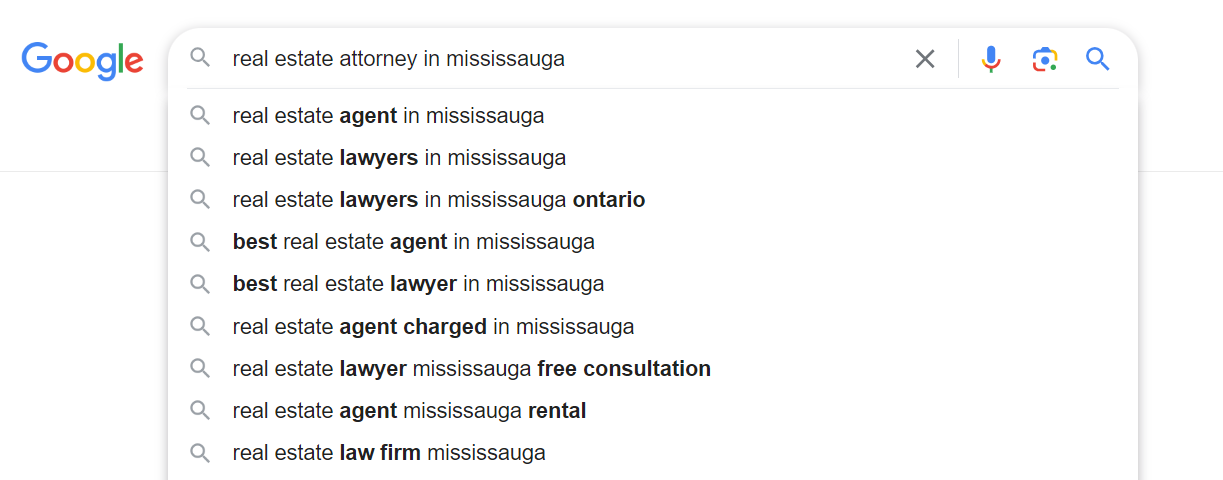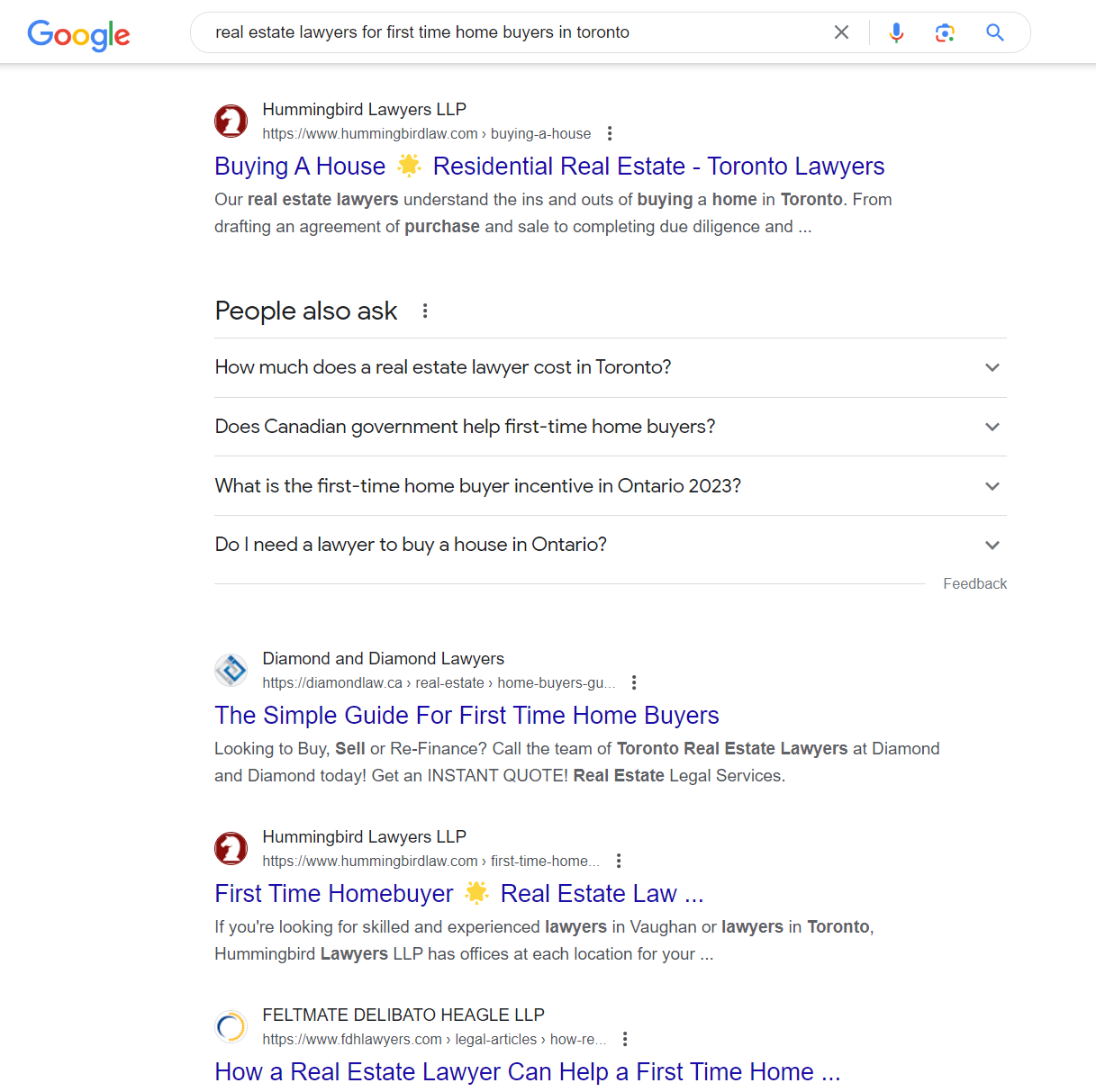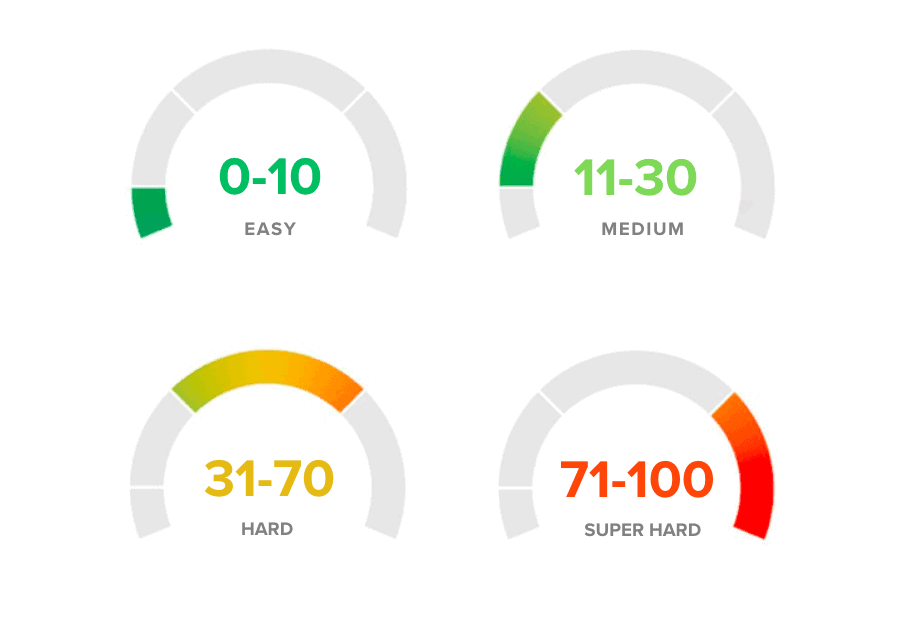In the hyper-competitive world of real estate law, establishing a strong online presence is crucial for legal firms to connect with their potential clients.
One fundamental aspect of this digital strategy is keyword research, a strategy that, if mishandled, can lead to missed opportunities and misaligned marketing efforts.
Today, we’ll unravel some common keyword research mistakes that legal firms in the real estate sector should steer clear of, and we can guide you on how to avoid these pitfalls.
Overlooking Local SEO Keywords
Real estate law is local in its nature. A common misstep is focusing solely on broad, generic keywords, like “real estate lawyer,” without considering the power of local SEO.
Firms should prioritize geographically specific keywords, such as “real estate attorney in [City Name],” to target potential clients in their immediate area. By doing so, they enhance their visibility to a more targeted audience.

Ignoring Long-Tail Keywords
Those longer and more specific phrases used by clients in their search queries are often underestimated.
Legal firms sometimes concentrate on highly competitive, short keywords, missing out on the niche-specific traffic that long-tail keywords can attract.

For instance, “Real estate lawyers for first-time home buyers in Toronto “ could capture a specific segment of the market more effectively than a generic “real estate lawyer.”
There is also a main advantage to going for long-tail keywords. They have a very low competition. Less or no ads at all on the search results page.
Neglecting Search Intent
Understanding the intent behind a search query is vital. Keywords can have different interpretations, and failing to align your content with what users are actually searching for can be detrimental.
For example, someone searching for “real estate contract review” may be seeking legal advice, not a how-to guide. They are looking for professional assistance and not a DIY solution.
Tailoring content to match the search intent ensures that you meet the user’s needs more accurately.
Overlooking Competitor Keyword Strategies
In the competitive landscape of legal services, it’s essential to keep an eye on the keywords your competitors are targeting. Overlooking what others in your field are doing can lead you to miss out on key terms and trends.
Analyzing competitors’ keyword strategies can provide valuable insights and help in identifying gaps in your keyword plan.
Disregarding Keyword Difficulty
A common oversight is targeting keywords that are too competitive, without considering the difficulty of ranking for them.
Think of keyword difficulty as the sweet spot between being too popular and not popular enough. Going for words that everyone is trying to rank for can be tough, and picking ones that hardly anyone searches for might not get you the visibility you want.
Keyword Difficulty is often measured in terms of a metric called Keyword Difficulty Score (KDS).
Keyword difficulty score (KDS) indicates how challenging it is to rank high in search engine results for a specific keyword.

KDS above 70 – These keywords are highly competitive. Targeting them requires a solid SEO strategy and patience before seeing the results. They’re challenging but can be rewarding with the right approach
KDS between 30 -70 – Keywords in this range are achievable and often come with good search volumes.
KDS below 30 – Keywords with scores in this range are the easiest to rank for but might not have consistent high search volumes.
Aiming for keywords with moderate to low competition with a decent amount of people searching for them is the trick to finding a balance in terms of keyword difficulty.
This way, you’re more likely to attract the right attention without getting lost in the crowd.
Inconsistent Keyword Monitoring
Keyword effectiveness is not set in stone. Firms often set their keyword strategies and forget them, not considering the dynamic nature of search trends.
Regularly reviewing and adjusting keywords based on performance data is crucial for maintaining SEO relevance.
Sole Reliance on Automated Keyword Tools
While automated keyword research tools are invaluable, relying solely on them without human insight can lead to a lack of personalization and understanding of your specific target audience.
Integrating market knowledge and client insights into your keyword strategy is just as important as the data these tools provide.
Conclusion
Avoiding these common keyword research mistakes can greatly enhance the effectiveness of a legal firm’s online presence in the real estate sector.
However, with the fast-paced and ever-evolving world of SEO, keeping your business up to date with the latest SEO trends can be a daunting task.
Let us handle the heavy lifting for you. With our tailored keyword research plans, we can not only enhance your online presence but also help you save money spent on traditional advertising methods.
